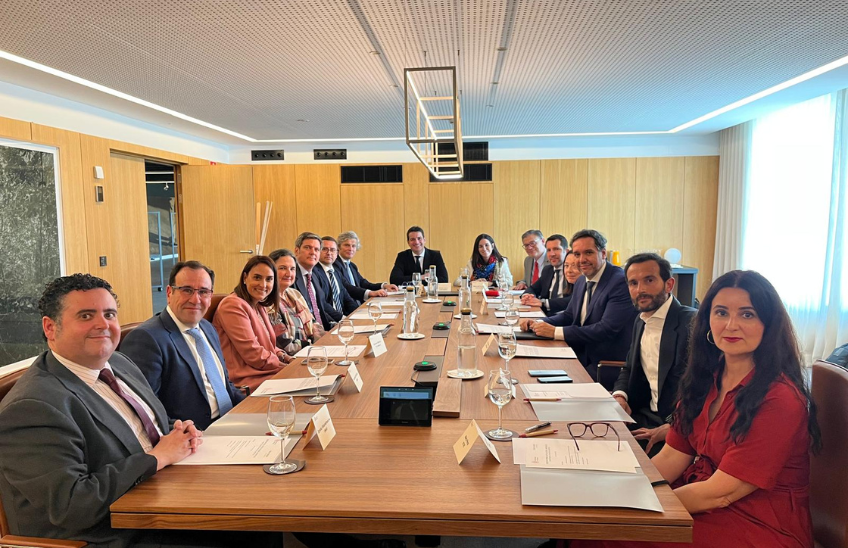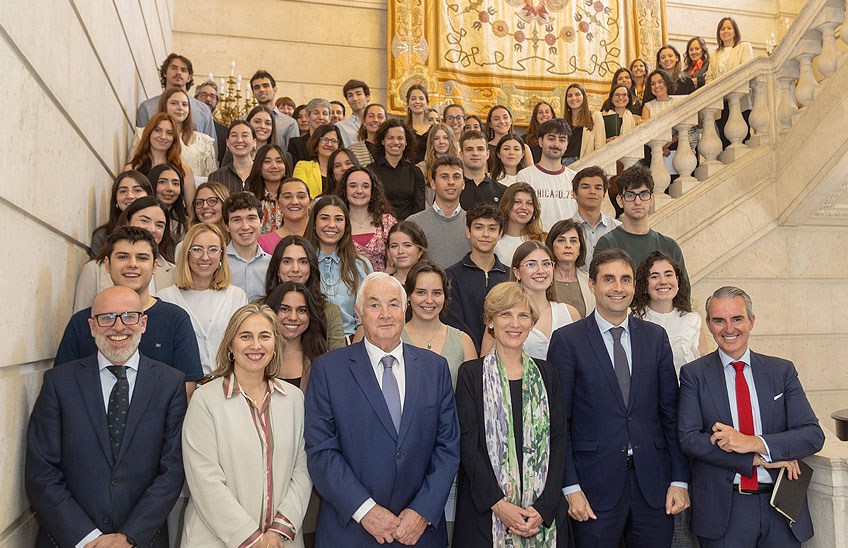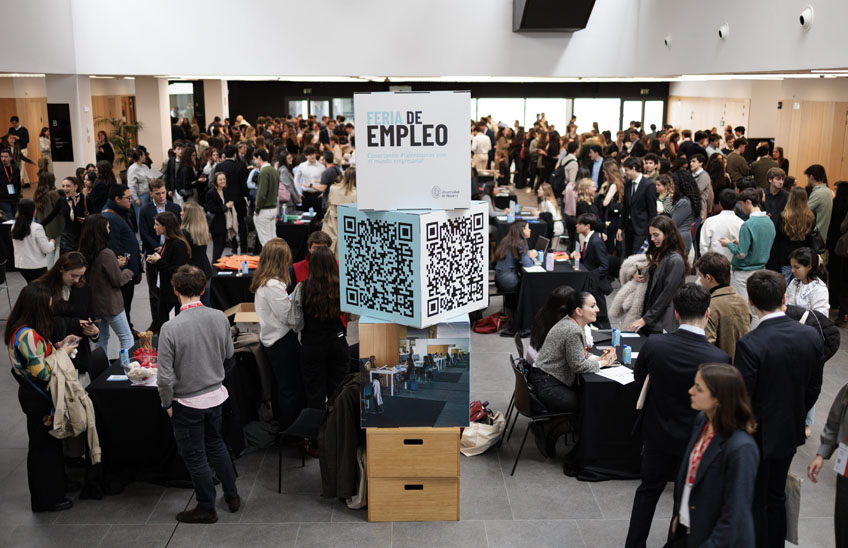Presentation of a monograph on the role of the Head of State in Spain and Portugal
Professor Asunción de la Iglesia is co-author of this study, edited by Pérez Llorca and REMCO.

FotoREMCO/Momentof the presentation of the monograph, which took place at Pérez-Llorca's headquarters in Madrid.
23 | 11 | 2025
The headquarters of the Pérez-Llorca law firm in Madrid recently hosted the presentation of the monograph The Institution of the Head of State in the constitutional systems of Portugal and Spain.. Published by Revista Jurídica Pérez-Llorca in partnership with REMCOnetwork for the Study of Contemporary Monarchies), the presentation was attendance by Asunción de la Iglesia Chamarro, Professor of Constitutional Law at the University's School of Law; Adolfo Mesquita Nunes, partner of Public and Regulatory Law at Pérez-Llorca's Lisbon office; and Ángel Rivero Rodríguez, Professor of Political Science and Administration at the Universidad Autónoma de Madrid, co-authors of the study.
The experts participated in a roundtable on the role of the parliamentary monarchy and the republic in the constitutional system of the two countries.
The conversation analyzed issues such as the institutional neutrality of the head of state, democratic legitimacy, the balance between presidential prerogative and parliamentary legitimacy, and the symbolic and moderator role of these institutions in contexts of polarization. Central aspects of the monograph were also discussed, from the influence of democratic transitions to the jurisprudence on the inviolability of the head of state, including the role of the Constitutional Court and everyday legitimacy in parliamentary systems.
Other speakers included Pedro Pérez-Llorca, partner director the firm, who stressed the importance of studying institutions that perform essential functions of moderation and stability in contemporary democracies; and Francisco Beltrán, director of REMCO, who highlighted the importance of an academic dialogue between Spain and Portugal, at a time when both democratic trajectories allow for a review of the foundations of the head of state from the perspective of comparison and historical experience.
One monograph, seven analyses
The prologue of the monograph is signed by Paulo Portas, former deputy prime minister of Portugal, and brings together seven programs of study that analyze the evolution of heads of state in Spain and Portugal from their transitions to the present day.
In addition to those mentioned above, Juan Carlos Jiménez Redondo, Full Professor of History of Thought and Social Movements at CEU-San Pablo University, analyzes how the transitions in both countries influenced their political culture and institutional consolidation; together with Adolfo Mesquita Nunes, Francisco Ribeiro Ferreira, associate consultant at CEJURE (Centro Jurídico do Estado), studies presidential discretionality in the appointment of the Prime Minister; Javier Tajadura Tejada, professor of Constitutional Law at the University of the Basque Country, who compares the moderating functions of the Portuguese presidency and the Spanish crown; Alfredo Aguilera, state lawyer and counsel in the litigation area of Pérez-Llorca, who reviews the jurisprudential evolution on the responsibility and inviolability of the head of state in Spain; and Diogo Noivo, political scientist and public affairs consultant , who reflects on the daily legitimacy as a "daily plebiscite" in parliamentary systems.



